By Rupal Shirpurkar, Alibaba Cloud MVP and Business Head (Cloud BU - APAC) Click2Cloud Inc.
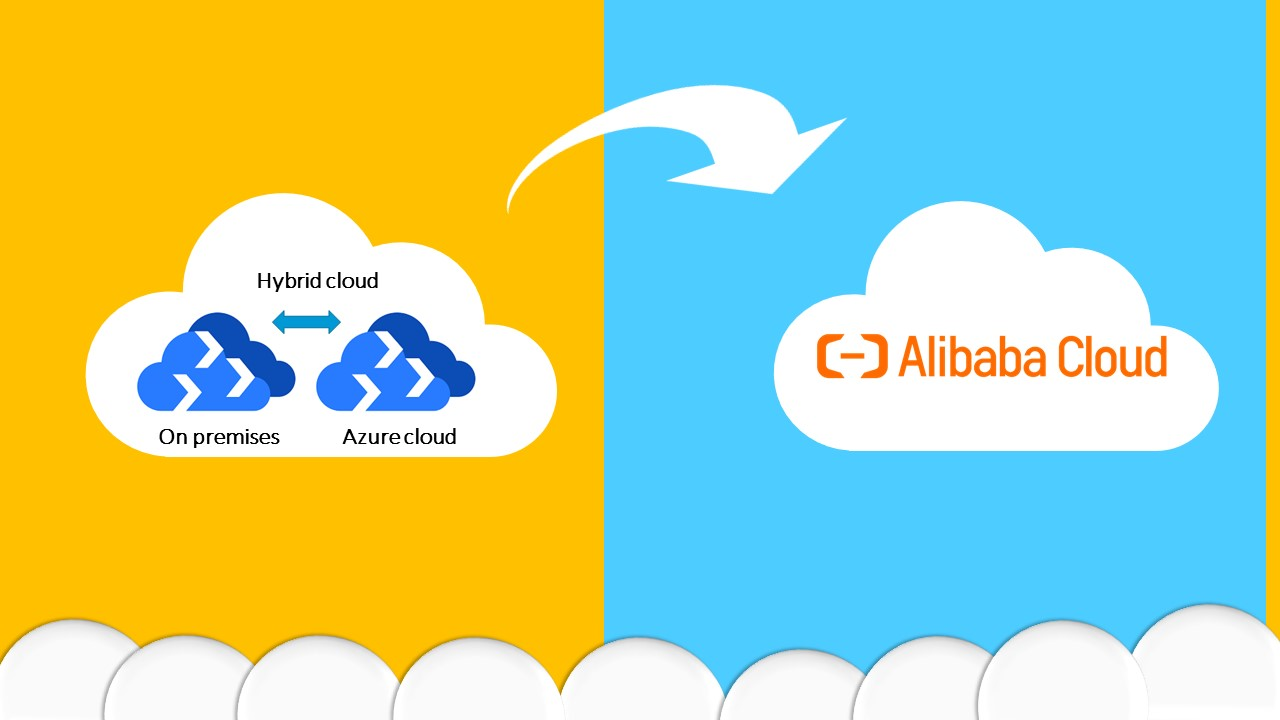
What is a hybrid cloud migration? Hybrid cloud is a cloud computing environment that uses a mix of on-premises, private cloud and third-party, public cloud services with orchestration between the two platforms. This process of migrating applications, VMs, database either public, private or on-premise to cloud is called cloud migration.
The companies cannot solely rely on either private cloud network (due to lack of versatility) or public cloud network (companies are hesitant to put their sensitive intellectual processes on public cloud). Hence, the migration to hybrid cloud seems logical as it offers the best of both worlds.
Migrating your data from one cloud to another cloud sometimes leads you with messy steps. Say, for example, Azure cloud and on-premises VM's provides the services which lead to consumption and increased billing. The best option here is to migrate them to Alibaba Cloud instance.
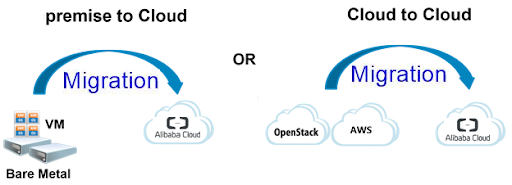
Hybrid Cloud Migration
Alibaba Cloud offers highly reliable and secure hybrid cloud deployment solutions, with a focus on allaying organizations' concerns regarding availability, security and connectivity.
User can easily migrate their data, applications, VMs from Azure and On-premises VM's to Alibaba Cloud in just few easy steps with the help of migration feature. User do not even require spending their time-wasting on migration processes.
There are certain steps organizations should take before adopting a hybrid cloud. These include an assessment of existing software and applications to determine those ideally suited for public cloud deployment, and those that need to be kept on dedicated infrastructure. Businesses can start by moving a small part of their workload to the cloud and optimize along their way to full-scale deployment.
The first step towards a successful data migration process is the evaluation of businesses basic needs as well as its future capacity and use.
To understand it Lets take an example, say you have virtual machines running on Azure and On-premises VM's and you would like to calculate how much this infrastructure would cost in Alibaba for both at the same time. Doing this by accessing server by server review could take time.
The Migration Tool helps to analyze your infrastructure and show you in two minutes how much money you can save by migrating from Azure and On-premises VM's to Alibaba Cloud.
A migration plan is incomplete without a backup plan. There is always a non-zero probability for errors to happen in a migration process, and damages are often irreversible. Schedule migration notify users if there is any down time expected during cut over.
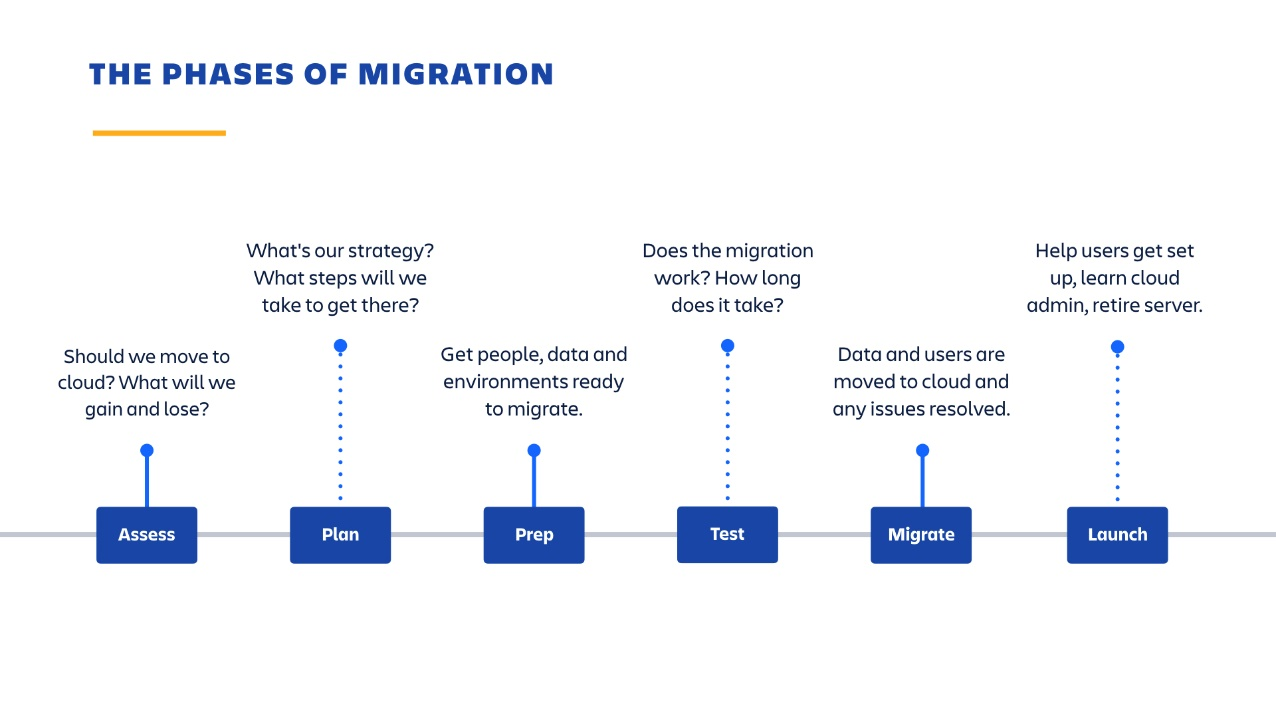
Phases for Cloud Migration
Migration Tool is a suite of tailored services for organizations across different vertical looking to migrate application, database, file, and virtual/bare metal to cloud with minimal risk and near-zero downtime. User can migrate their workload in fully automated manner with the drag and drop feature using minimal clicks.
Migration studio as SaaS offering is one stop shop for all migration needs providing seamless experience with cost effective and reliable tool kit. Technical and feasibility evaluation, choice of cloud recommendation through extensive cloud comparison report is add-on value with Migration Studio offering.
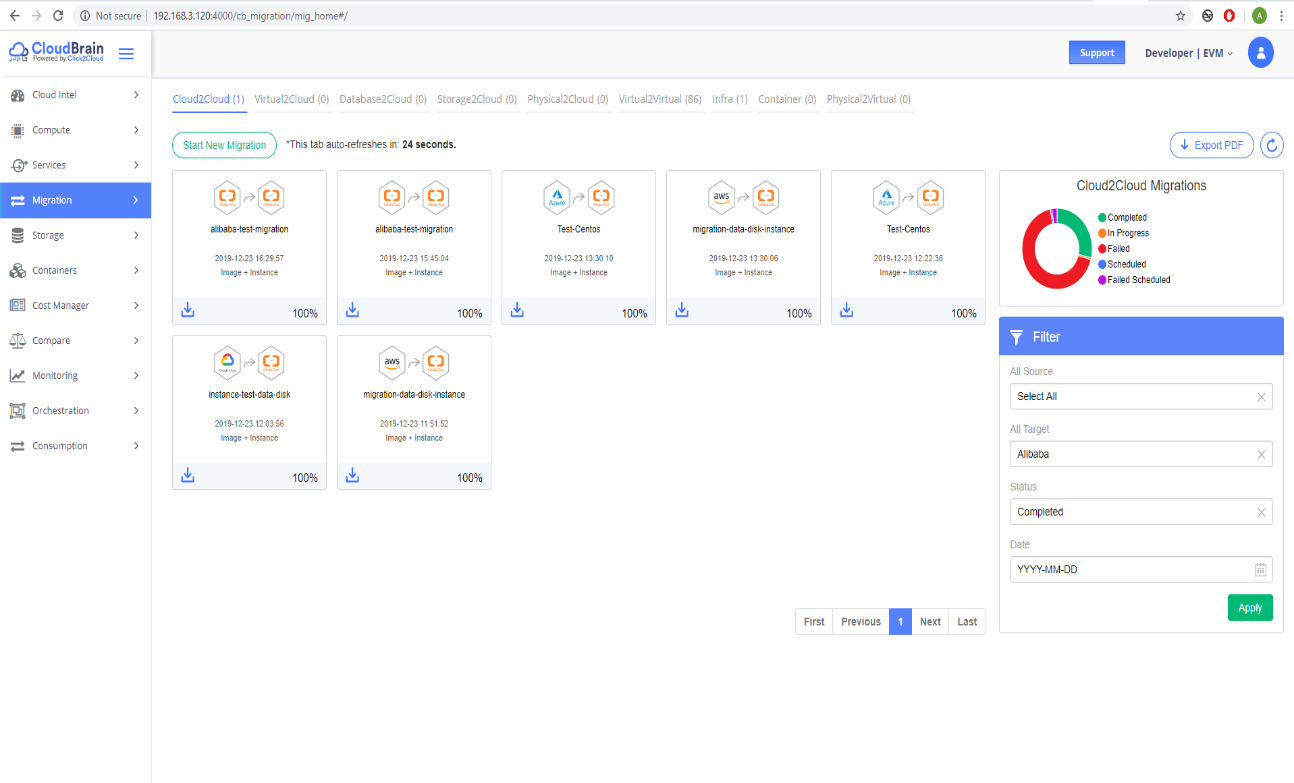
Migration from Azure to Alibaba cloud
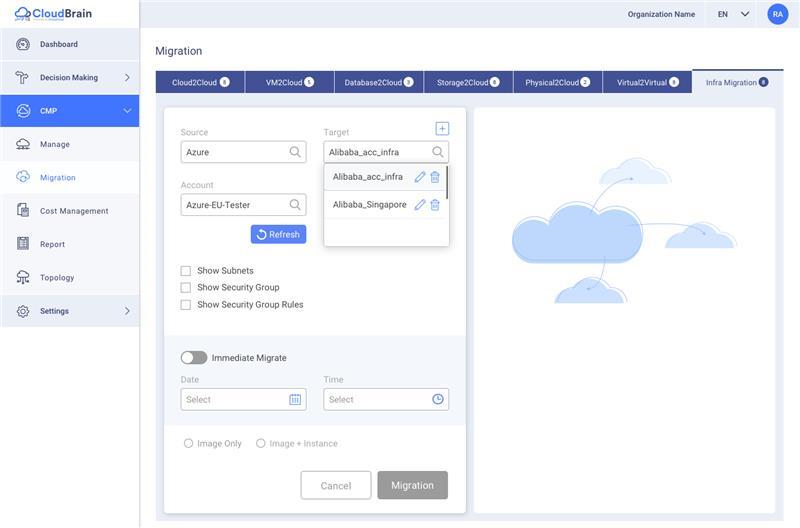
Migration from Azure to Alibaba cloud
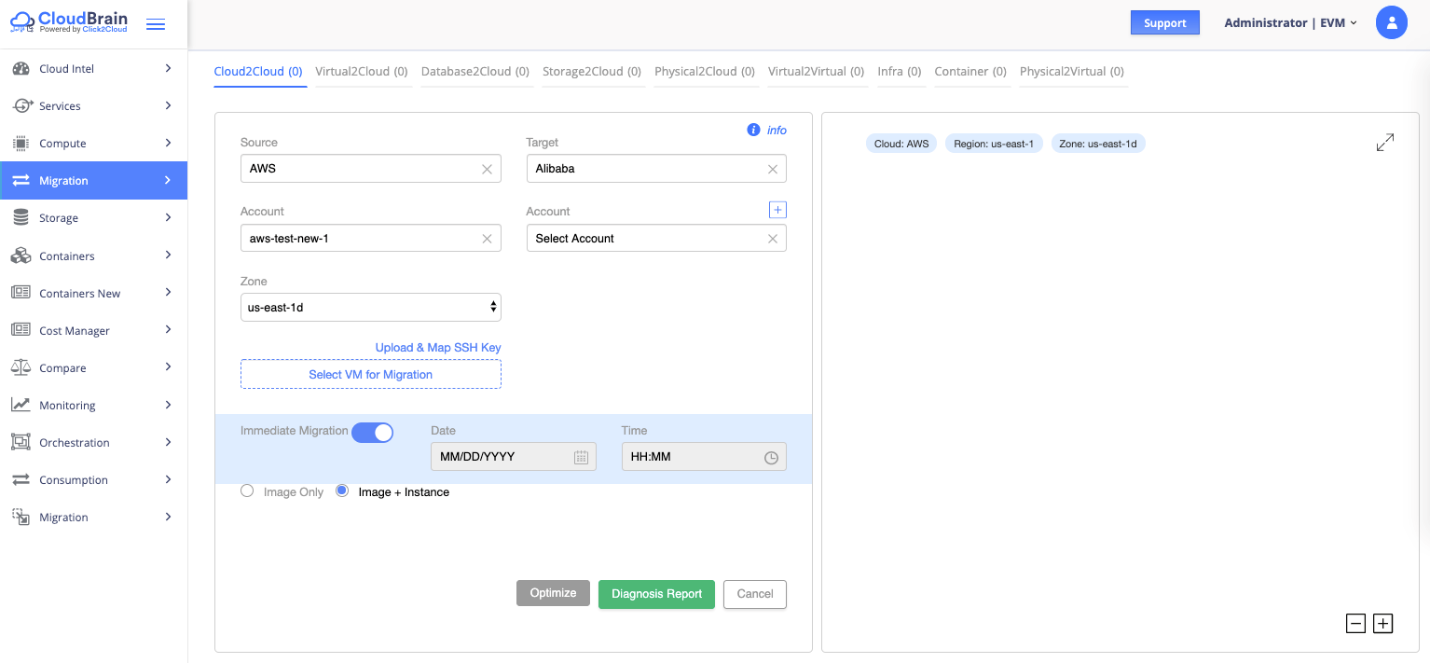
Migration Scenario
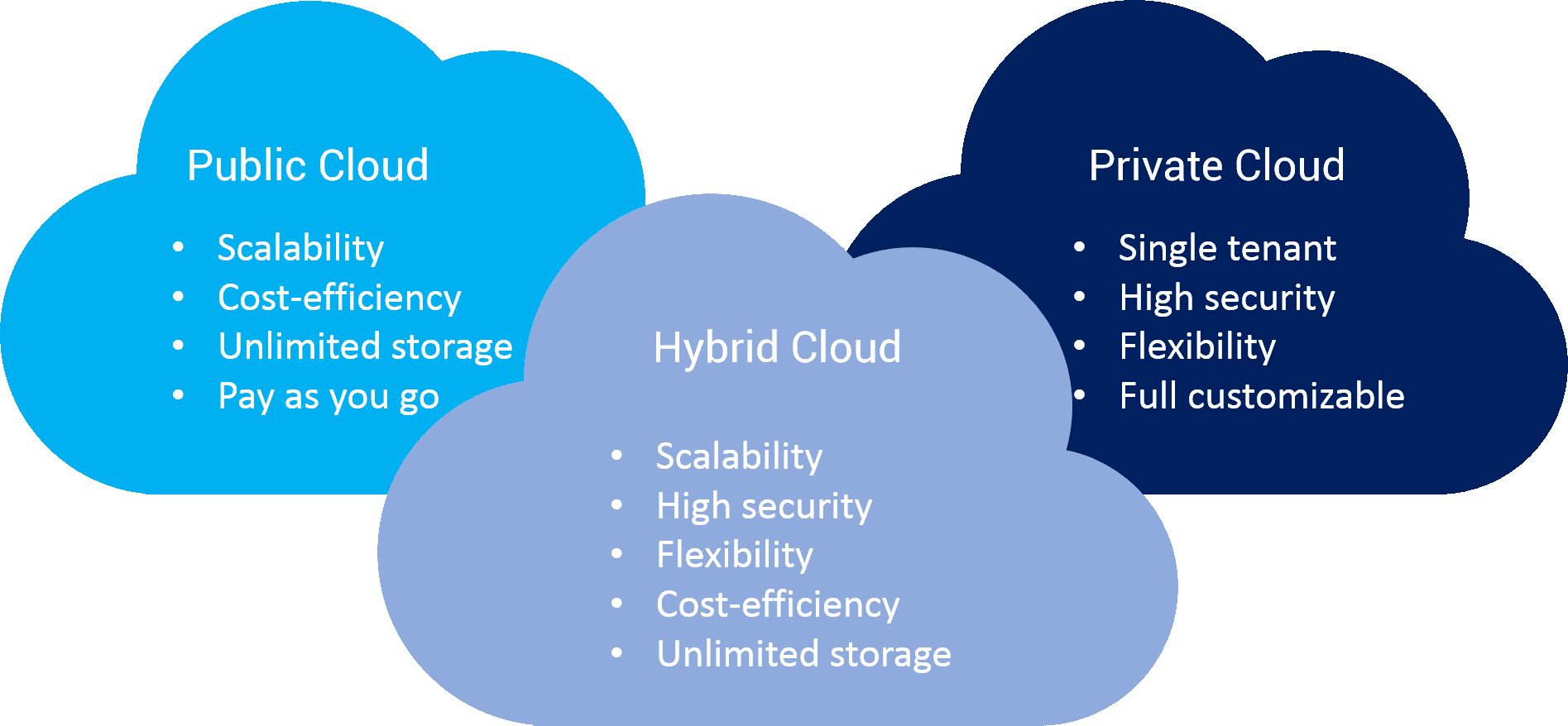
Benefits of Hybrid Cloud Migration
Hybrid cloud migration offers organizations the benefits of both a public and private cloud model to deliver agile, elastic, and secure cloud solutions at lower costs. Businesses can innovate with faster go-to-market strategies and respond with agility to changing market dynamics, increasing their competitiveness. Business continuity through disaster recovery is another benefit to the organization. These solutions in turn enable organizations to fully experience the unique benefits of the hybrid cloud migration.
Network Functions Virtualization/Virtual Private Cloud: Way to Modernize Network

107 posts | 10 followers
FollowKidd Ip - October 27, 2025
Alibaba Clouder - June 27, 2018
Alibaba Clouder - March 15, 2018
Rupal_Click2Cloud - December 23, 2024
Alibaba Clouder - January 3, 2018
Alibaba Cloud Native Community - November 14, 2025

107 posts | 10 followers
Follow Hybrid Cloud Solution
Hybrid Cloud Solution
Highly reliable and secure deployment solutions for enterprises to fully experience the unique benefits of the hybrid cloud
Learn More Bastionhost
Bastionhost
A unified, efficient, and secure platform that provides cloud-based O&M, access control, and operation audit.
Learn More Cloud Migration Solution
Cloud Migration Solution
Secure and easy solutions for moving you workloads to the cloud
Learn More Hybrid Cloud Storage
Hybrid Cloud Storage
A cost-effective, efficient and easy-to-manage hybrid cloud storage solution.
Learn MoreMore Posts by Rupal_Click2Cloud